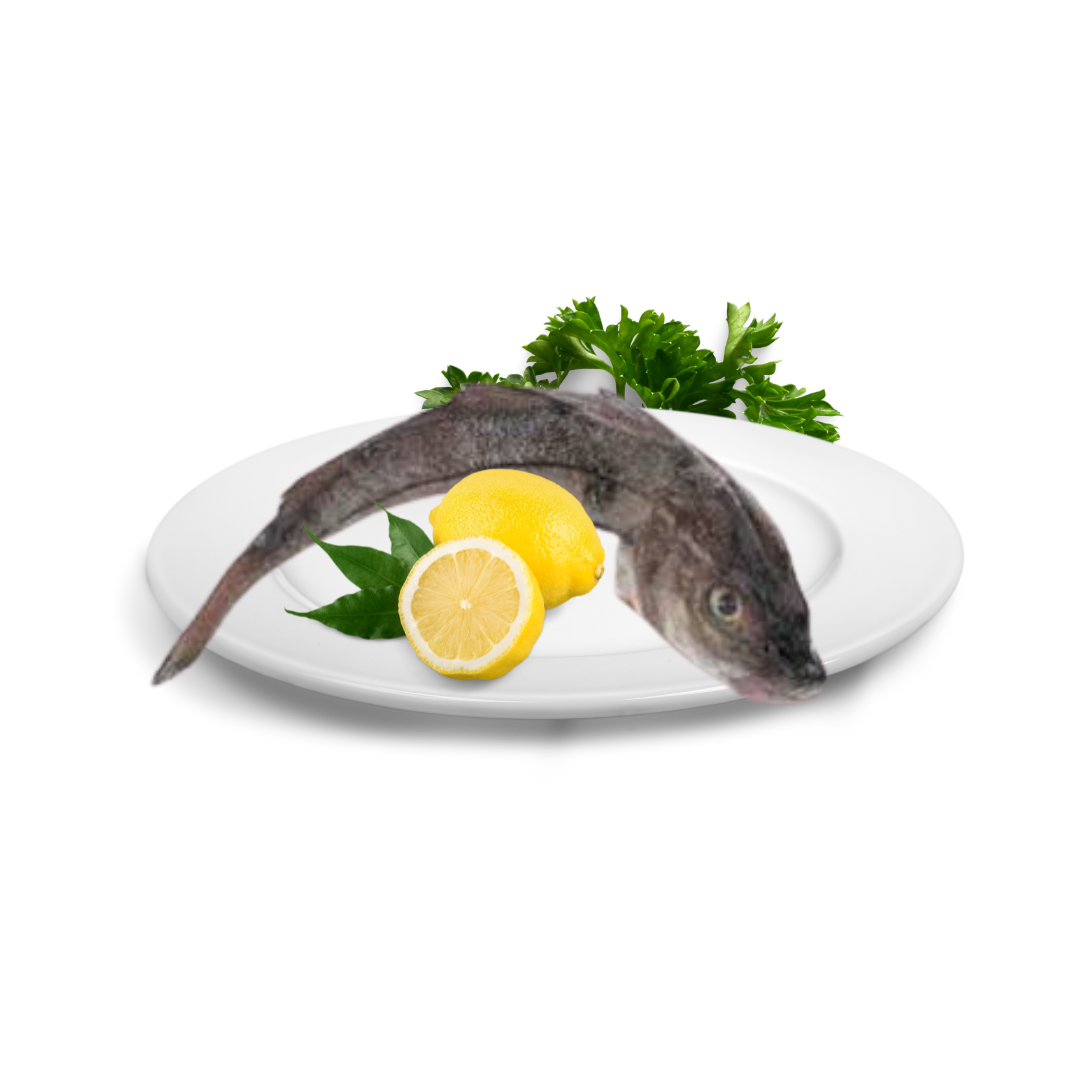
About Haddock
Haddock is a saltwater fish that belongs to the Gadidae family. It is a popular food fish that is commonly found in the North Atlantic Ocean. Haddock is a low-fat, low-calorie source of protein that is rich in essential nutrients, including vitamins and minerals.
Health Benefits of Haddock:
-
Protein Source: Haddock is an excellent source of high-quality protein. It contains all the essential amino acids required by the body to build and repair tissues.
-
Heart Health: Haddock is low in fat and high in omega-3 fatty acids, which are known to improve heart health. Omega-3 fatty acids help to lower blood pressure, reduce the risk of heart disease, and prevent the buildup of plaque in the arteries.
-
Bone Health: Haddock is a good source of calcium, which is essential for strong bones and teeth. It also contains vitamin D, which helps the body absorb calcium and promotes bone health.
-
Immune System: Haddock contains zinc and vitamin C, which are both important for a healthy immune system. Zinc helps to boost the immune system and fight off infections, while vitamin C helps to protect the body against harmful free radicals.
-
Weight Management: Haddock is low in calories and fat, making it an ideal food for weight management. It is also rich in protein, which helps to keep you feeling full and satisfied for longer periods.
Diseases that can be prevented by consuming haddock:
- Heart Disease
- Osteoporosis
- Anemia
- Common Cold and Flu
- Obesity
Table 1: Macro Nutrients found in 50 grams of Haddock
| Nutrient | Amount |
|---|---|
| Calories | 46 |
| Carbohydrates | 0g |
| Protein | 10g |
| Fat | 0.6g |
| Fiber | 0g |
| Water Content | 38.5g |
Table 2: Vitamins found in 50 grams of Haddock
| Vitamin | Amount |
|---|---|
| Vitamin A | 7.5mcg |
| Vitamin B1 | 0.1mg |
| Vitamin B2 | 0.1mg |
| Vitamin B3 | 2.2mg |
| Vitamin B6 | 0.2mg |
| Vitamin B12 | 1.4mcg |
| Vitamin C | 0mg |
| Vitamin D | 200IU |
| Vitamin E | 0.4mg |
| Vitamin K | 0.2mcg |
| Folate | 2.5mcg |
| Biotin | 2.5mcg |
Table 3: Minerals found in 50 grams of Haddock
| Mineral | Amount |
|---|---|
| Calcium | 17.5mg |
| Iron | 0.2mg |
| Iodine | 36.5mcg |
| Zinc | 0.5mg |
| Magnesium | 20mg |
| Phosphorus | 115mg |
| Potassium | 222mg |
| Sodium | 200mg |
| Chloride | 360mg |
| Copper | 0.1mg |
| Chromium | 0mcg |
| Fluoride | 8mcg |
| Molybdenum | 0mcg |
What is Haddock?
Haddock is a saltwater fish that belongs to the cod family. It is commonly found in the North Atlantic Ocean.
How to cook Haddock?
Haddock can be cooked using various methods such as baking, grilling, pan-frying, smoking, and poaching.
What are some Haddock recipes?
Some popular Haddock recipes include baked Haddock with lemon and herbs, grilled Haddock with garlic butter, pan-fried Haddock with breadcrumbs, and smoked Haddock chowder.
What is the nutritional value of Haddock?
Haddock is a good source of protein, vitamin D, and minerals such as phosphorus and selenium. It is also low in fat and calories.
Is Haddock high in Omega-3?
Yes, Haddock is a good source of Omega-3 fatty acids, which are beneficial for heart health and brain function.
How to prepare Haddock for cooking?
Haddocks can be cleaned and filleted by removing the head, tail, and bones. It can also be purchased pre-filleted from a seafood market or grocery store.
What are the different ways to cook Haddock?
Haddock can be baked, grilled, pan-fried, smoked, or poached.
What are some seasoning options for Haddock?
Haddock can be seasoned with herbs such as thyme and rosemary, spices such as paprika and cumin, or with lemon and garlic.
How to bake Haddock in the oven?
Preheat the oven to 375°F. Place the Haddock fillets on a baking sheet and season with salt, pepper, and herbs of your choice. Bake for 15-20 minutes or until the fish is cooked through.
How to grill Haddock?
Preheat the grill to medium-high heat. Brush the Haddock fillets with oil and season with salt, pepper, and garlic. Grill for 4-5 minutes on each side or until the fish is cooked through.
How to pan-fry Haddock?
Heat a skillet with oil over medium heat. Season the Haddock fillets with salt and pepper, and coat them with breadcrumbs. Fry for 3-4 minutes on each side or until the fish is golden brown.
How to smoke Haddock?
Soak the Haddock fillets in a brine solution for several hours. Smoke the fish over low heat for 1-2 hours until it is cooked and has a smoky flavor.
How to poach Haddock?
Bring a pot of water to a simmer. Add a bay leaf and some herbs to the water. Place the Haddock fillets in the water and cook for 5-8 minutes or until the fish is cooked through.
Is Haddock a sustainable seafood choice?
Yes, Haddock is a sustainable seafood choice as it is widely available and caught using responsible fishing practices.
What are the health benefits of eating Haddock?
Haddock is a good source of protein, Omega-3 fatty acids, and minerals that are beneficial for heart health, brain function, and overall health.
How to choose fresh Haddock?
Look for Haddock that has clear eyes, shiny skin, and smells fresh. The flesh should be firm and not slimy.
What is the best way to store Haddock?
Haddock should be stored in the refrigerator at 32-38°F and consumed within 2-3 days.







